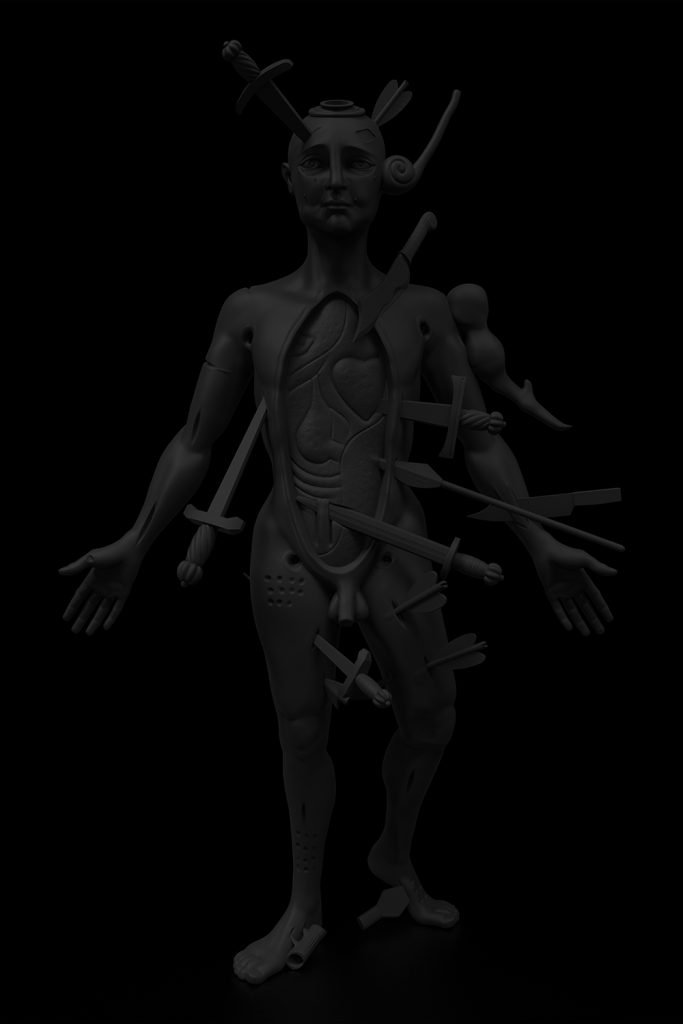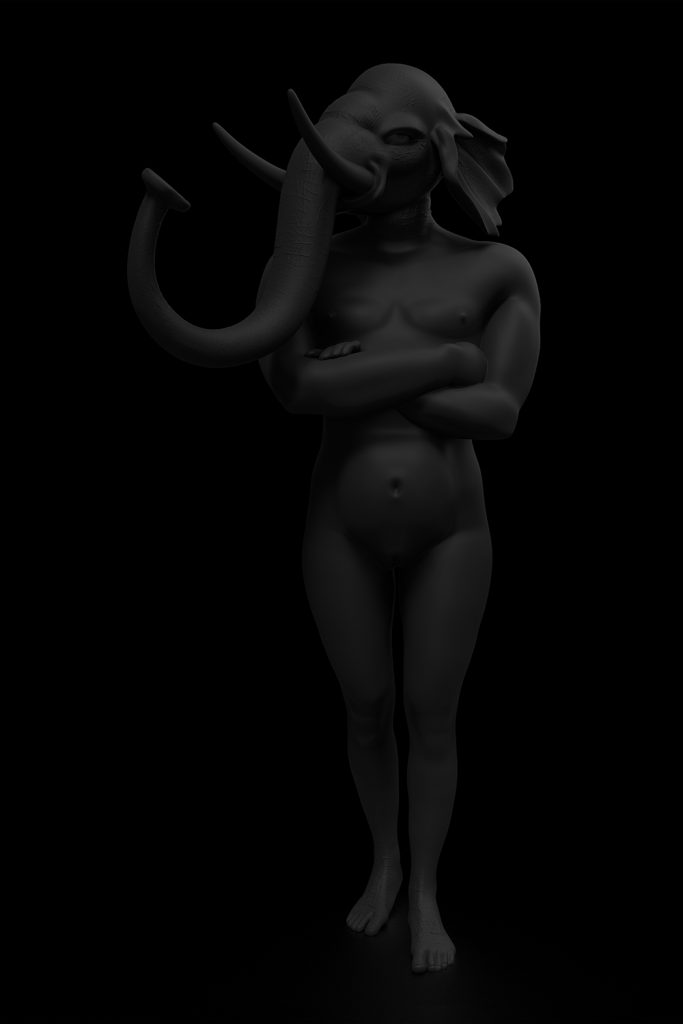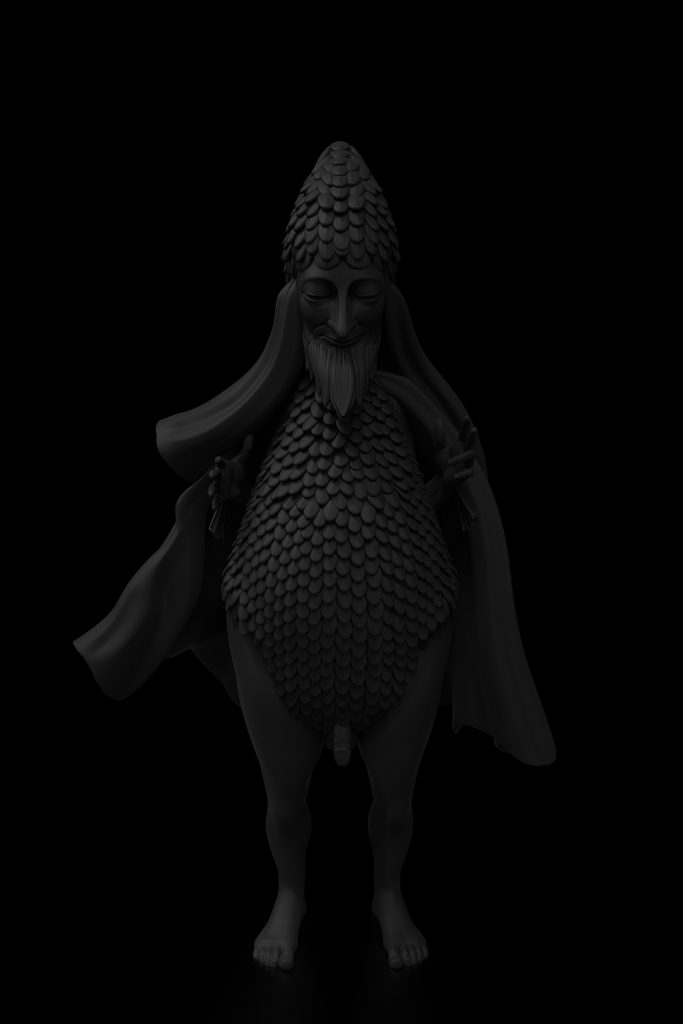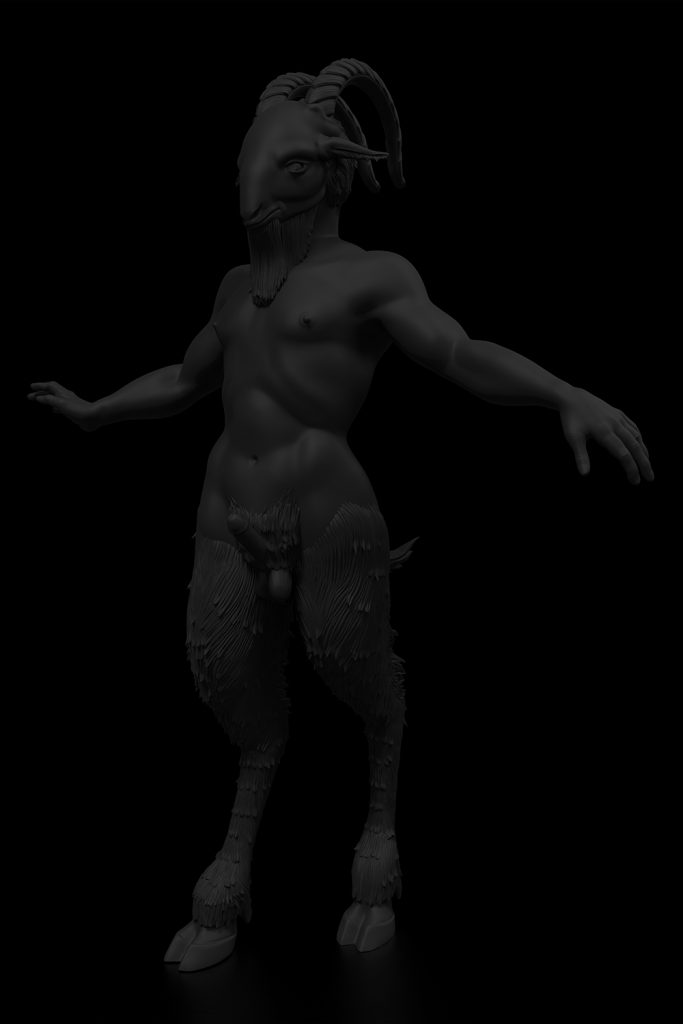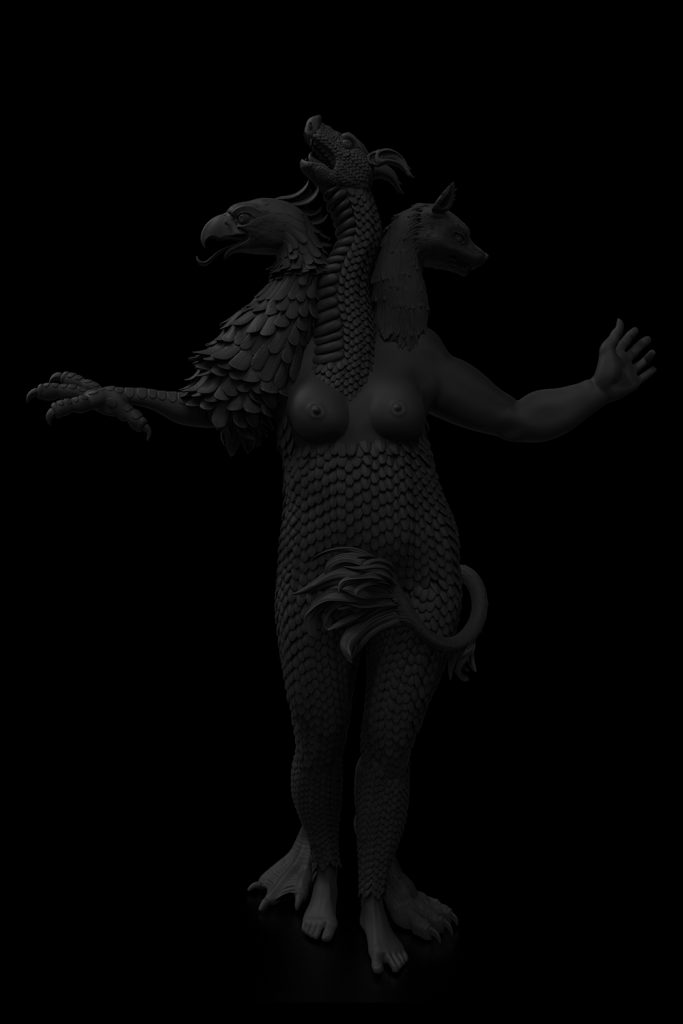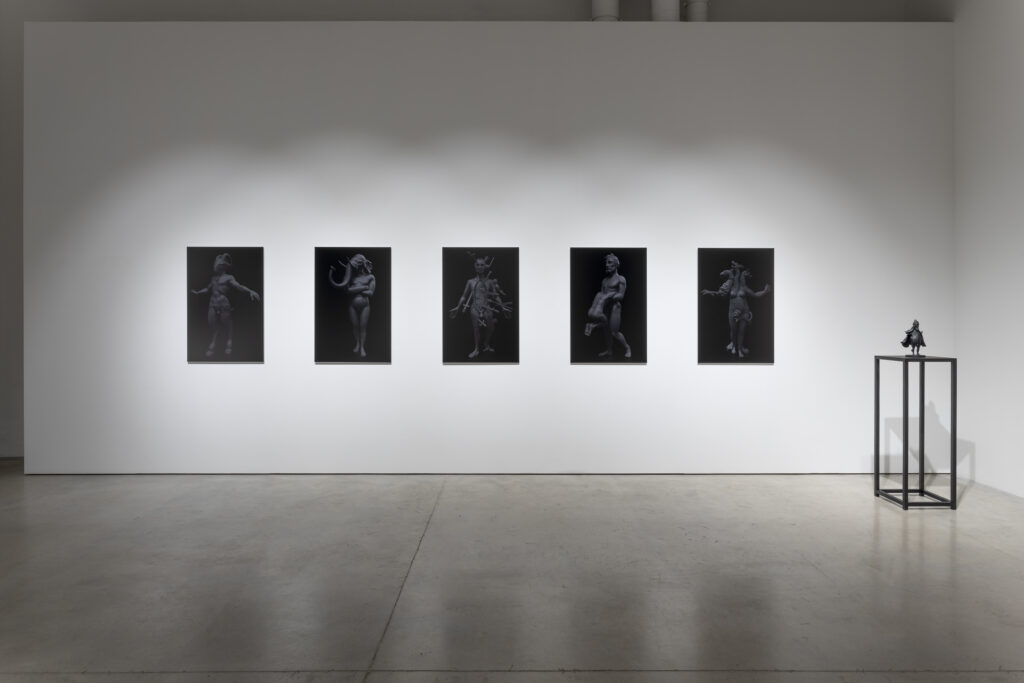
Installation view Temnikova & Kasela, Tallinn, 2021, photo Roman-Sten Tõnissoo
The Psalms draws from historical representations of mythological figures, beasts, and monstrous humans and animals from the middle ages until the 19th century. The work reflects on the medical and cultural conceptions of “natural” and “unnatural” bodies and is concerned with categorizations of identity that have—and continue—to produce the discrimination of minority communities.
Queer bodies have historically been folded into the monstrous and it is not a coincidence that Satanic and other demonic figures have been often represented as dual gendered or featuring exaggerated sexual characteristics. Representations of “the enemy” have equally been positioned as monstrous, simultaneously signifying the actual monstrosity of historical persecutions, erasures, mutilations, and other forms of abuse of power.
The Psalms is interested in the links between sexuality, science, medical practice, and religious iconography to form a kind of encyclopedia of the “monstrous and the bizarre” and to suggest ways to challenge the categorizing gaze.
